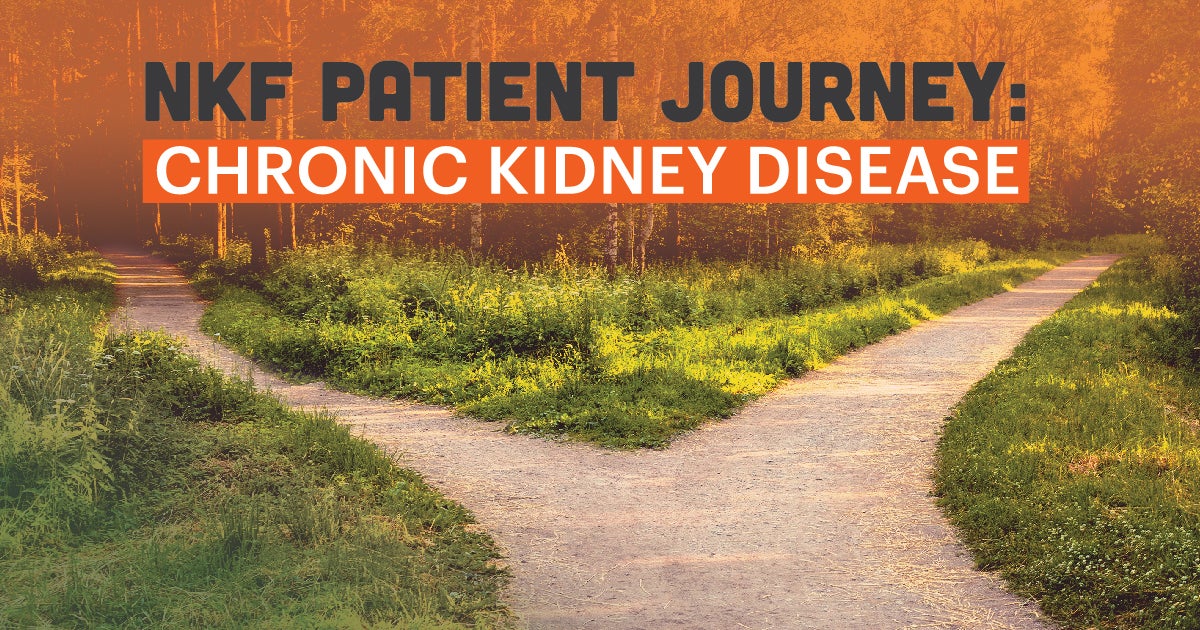Good nutrition helps people with kidney disease stay healthy. If your kidneys are not working so well, some changes in the diet help you feel better.
What is diabetes?
Diabetes happens when your body does not make enough insulin or cannot use insulin properly. Insulin is a hormone. It controls how much sugar is in your blood. A high level of sugar in your blood can cause problems in many parts of your body, including your heart, kidneys, eyes, and brain. Over time, this can lead to kidney disease and kidney failure.
There are two main types of diabetes. Type 1 diabetes generally begins when people are young. In this case, the body does not make enough insulin. Type 2 diabetes is usually found in adults over 40, but is becoming more common in younger people. It is usually associated with being overweight and tends to run in families. In type 2 diabetes, the body makes insulin, but cannot use it well.
What is chronic kidney disease (CKD)?
Your kidneys are important because they keep the rest of your body in balance. They:
- Remove waste products from the body
- Balance the body’s fluids
- Help keep blood pressure under control
- Keep bones healthy
- Help make red blood cells.
When you have kidney disease, it means that the kidneys have been damaged. Kidneys can get damaged from a disease like diabetes. Once your kidneys are damaged, they cannot filter your blood nor do other jobs as well as they should.
How does diabetes cause damage to my kidneys?
Diabetes can harm the kidneys by causing damage to:
- Blood vessels inside your kidneys. The filtering units of the kidney are filled with tiny blood vessels. Over time, high sugar levels in the blood can cause these vessels to become narrow and clogged. Without enough blood, the kidneys become damaged and albumin (a type of protein) passes through these filters and ends up in the urine where it should not be.
- Nerves in your body. Diabetes can also cause damage to the nerves in your body. Nerves carry messages between your brain and all other parts of your body, including your bladder. They let your brain know when your bladder is full. But if the nerves of the bladder are damaged, you may not be able to feel when your bladder is full. The pressure from a full bladder can damage your kidneys.
- Urinary tract. If urine stays in your bladder for a long time, you may get a urinary tract infection. This is because of bacteria. Bacteria are tiny organisms like germs that can cause disease. They grow rapidly in urine with a high sugar level. Most often these infections affect the bladder, but they can sometimes spread to the kidneys.
How do I know if I have kidney damage?
Most people with early kidney damage do not have symptoms. The best way to find early kidney damage is to have a urine test once a year. This test checks for very small amounts of protein in the urine called albuminuria. It helps show kidney damage at an early stage in people with diabetes. Not everyone with kidney disease gets kidney failure. With the right treatment, you can prevent kidney disease from getting worse.
If I have diabetes and kidney damage, what should I do?
Your healthcare provider will create a treatment plan for you. You may also need to see a kidney doctor (called a "nephrologist"). A dietitian may be helpful too. The following things can help your kidneys work better and last longer:
- Controlling your blood sugar
The best way to prevent or slow kidney damage is to keep your blood sugar well controlled. This is usually done with diet, exercise, and, if needed, insulin or hypoglycemic pills (to lower your blood sugar level). - Controlling high blood pressure
High blood pressure can increase your chances of getting kidney failure. Ask your doctor what your blood pressure target should be. - Protecting kidney function by taking ACE inhibitors or ARBs
Your doctor may have you take high blood pressure medicines (called ACE inhibitors or ARBs) even if your blood pressure is normal. Research suggests that these medicines can slow the loss of kidney function in all people with diabetes—even those with normal blood pressure. - Limiting how much protein you eat
People with diabetes and kidney disease should eat enough protein for good health, but avoid overeating it. Research suggests that eating less protein can slow kidney damage. You should talk to your doctor about this. If you need to go on a low-protein diet, you must plan this with a dietitian who specializes in kidney disease. Do not go on this type of diet without talking to a dietitian so that you have a healthy approach to dietary changes. - Promptly reporting to your doctor any difficulty passing urine
Early treatment for urinary tract infections is important. Some signs of urinary infection could be: frequent need to urinate, burning or pain with urination, cloudy or blood-spotted urine, or a strong odor to your urine. - Limiting the amount of salt in your diet to help control high blood pressure and reduce body swelling.
- Not using medicines that may damage the kidneys especially NSAIDs (Non-Steroidal Anti-Inflammatory Drugs) such as ibuprofen and naproxen. Check with your doctor before taking any herbal supplements because some can harm the kidneys.
- Keeping cholesterol and lipid levels under control. This will help prevent further damage to larger blood vessels, such as those in the brain and heart.
Where can I get more information?
The National Kidney Foundation has free booklets that provide more information about diabetes and kidney disease. Call the national toll-free number 855.653.2273 and ask for free booklets. You can see these and other titles at www.kidney.org/store.
If you would like more information, please contact us.


















